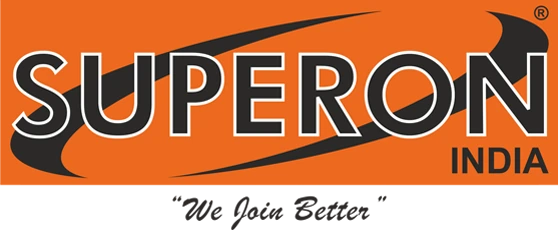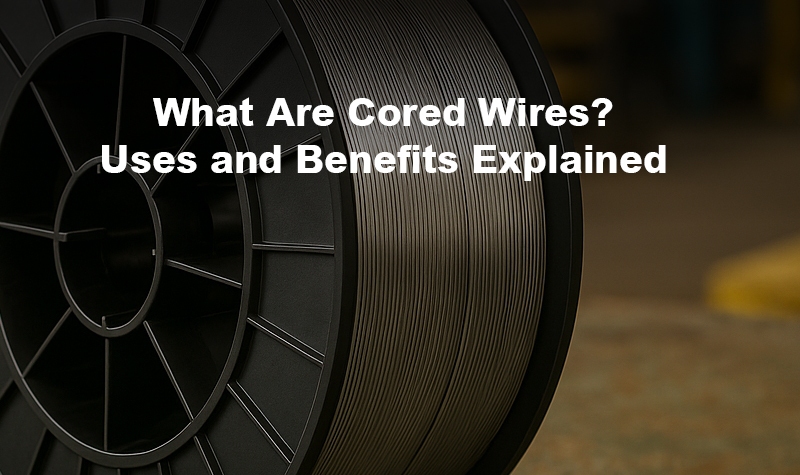In the realm of welding, efficiency and quality are of utmost concern. You will come across different factors involving the best results in welding, some of them being welding wire and today’s discussion topic of cored wire. One of the examples is using cored wire in the proper applications and potential cost reduction as well as improved quality, while welding can be one of the possible options. This would, also, lead to the increase in productivity in welding operations if appropriate times and methods of using this wire were understood by companies thus helping them to maximize the benefits. Now, let’s unfurl what cored wire is exactly and what the benefits and considerations are.
What are Cored Wires?
Cored wires are made of a metallic outer sheath that is filled with either flux or metal powder. The reason why the industries are using cored wires is because it is produced by creating steel strips into a tube-like shape and then filling them with various powders of different materials. This has resulted in the production of cored wire which are now widespread in the different sectors and are rapidly catching up with the trend of wire manufacturing. Since the cored wires are used in various ways such as joining, hardfacing, repair, and maintenance welding, there has been a significant decline in the use of solid wire and electrodes.
So, what are the actual reasons for cored wires with higher prices to be more popular than the traditional ways? We will now look at the main advantages it offers such as cost reduction, the weld quality, and the weld metal deposition rate yield.
Advantages of Cored Wires
The advantages of cored wires are numerous, and hence, they have been widely applied in most fields. Benefits of cored wires making them outshine the traditional solid wires include:
Increased Deposition Rates: Cored wires confer a notable increase in deposition rates as against solid wires which is the reason for increased electricity and less welding time.
- Better Arc Stability: They are a smooth and stable arc and the result is a better weld bead appearance and much less spatter, thus the quality is higher.
- Improved Metallurgical Properties: Cored wires enable the addition of alloying elements to improve the mechanical and corrosion resistance of the weld metal.
- Higher Efficiency in Out-of-Position: Welding Flux-cored wires do good in all welding positions, as a result they are suitable for loads where vertical, horizontal, and overhead welding is necessary.
- Reduces Pre-Weld Preparation: As the cored wires are not only capable of handling mill scale but also contaminants, the use of the cored wires also minimizes the requirement of thorough surface cleaning.
- Versatility across Applications: Cored wires can be used in multiple applications, ranging from structural steel to shipbuilding and pipeline welding, which are the reasons why it is a good choice for several industries.
Types of Cored Wires
Let's look at the most common types of cored wires one will come across before proceeding into their applications:
Flux-Cored Arc Welding (FCAW) Wires
These types of cored wires in welding operations are filled with flux that creates a shielding gas during welding, thus protecting the weld from contamination, are the ones used in the welding process. They are of two types; Self-Shielded Flux-Cored Wires (FCAW-S) and Gas-Shielded Flux-Cored Wires (FCAW-G).
Metal-Cored Wires (MCAW)
Metal-cored wires contain a mixture of metallic powders and are thus the materials that enhance the deposition rate and reduce slag formation.
Composite-Cored Wires
These wires are gained by a process which combines the advantages of flux-cored and metal-cored, resulting in enhanced joint strength and weld ductility.
Stainless Steel Cored Wires
Cored wires for stainless steel are used mostly during welding operations to increase stainless steel's resistivity to corrosion and improve its mechanical properties.
Hardfacing Cored Wires
These kinds of wires are used to lay wear-resistant surfaces on metal components in order to extend their service life, meaning, they protect the machines from exhaustion.
Applications of Cored Wires
Core wires are incredibly versatile and have numerous applications in several industries. Let's go a little deeper at where they're used and why they work so well.
Welding Applications
Flux-Cored Arc Welding (FCAW) is used for the fabrication of structural, shipbuilding, and heavy machinery. Metal-Cored Arc Welding (MCAW) for reaching high deposition rates in automotive, construction, and manufacturing industries.
Steelmaking Industry
Additions of alloys: This method is used to add precise quantities of some alloys (e.g., calcium, aluminum, magnesium) in the melted metal to improve its mechanical properties.
Foundry Applications
It improves the properties of cast iron and steel during the casting process. It alters the shape of graphite in ductile iron, which can increase strength and toughness.
Surface Hardfacing and Cladding
It is applied for resistance to wear and corrosion coatings on tools, equipment, and pipelines. It is one of the major reasons for the machines to live longer that the protective coatings are applied to their parts.
Automotive and Aerospace Industry
Enable strength without defects, which is why car frames, aircraft, and engine parts are fashioned from them. It is responsible for the accuracy, dependability and durability.
Pipeline and Offshore Industry
It can be applied in the welding process of pipelines to create strong and durable welds under very demanding conditions. They are the most appropriate materials for such activities as they are resistant to impacts and corrosion.
Construction and Infrastructure
Ensures long-lasting and efficient welding in the structural steel of bridges, buildings, and industrial plants. It helps the metal structures to get stronger under the heavy loads.
Conclusion:
Some of the most important innovations with respect to many industries are cored wires. These enhance performance with associated cost savings and versatility. They come in handy in welding and electronics, among others.
Further advancement in technology will increase the use of cored wires and spread its application to new innovation in many types of industries requiring quality products and precise manufacturing. From welding businesses, manufacturers, and even the electronic world, cored wires are really something you should look into.
If you want industrial processes to become more efficient and productive, then look no further than cored wires.
Also Read: Your Ultimate Source for MIG and TIG Wires

